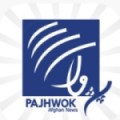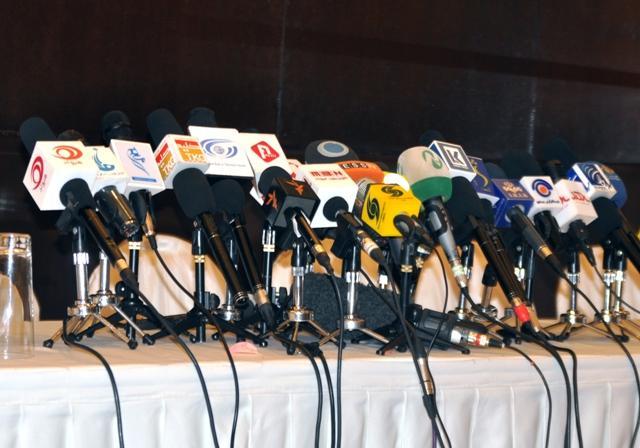
Acting Govt, World Urged To Support Journalists, Media Outlets
KABUL (Pajhwok): Some women journalists in the country have acknowledged reduction in the problems related to their profession but remained worried about low and delayed salaries and some curbs that still hampered their work.
Pajhwok Afghan News has conducted interviews with some women journalists in capital Kabul and some provinces who said that after regime change last year they faced with some problems such as having no access to information, losing jobs, not getting their salaries, facing torture and humiliation from security personnel and the imposition of curbs on the free speech by the authorities.
One of the women journalists, who wished not to be named served as editor-in-chief at one of the radio stations in capital Kabul, said after regime change last year restrictions were imposed on women in all professions, including media. Some women lost their jobs, some faced delay in their salaries and some face other problems.
She said after regime change all government departments spokespersons changed, the new individuals did not have professional behavior and in some cases women journalists were faced with violence and humiliation.
But she said over the past one year, there were improvements in some areas — access to information had improved, journalists were treated well in most of places while some problems existed in some areas.
She termed financial problem a massive challenge for the media professionals, adding that the salaries of some personnel had declined and some journalists had to leave their jobs in capital Kabul and provinces due to financial constraints.
She called for the support of journalists' media support organizations and added that journalists received no substantial support in current situation. In some cases, journalists were dismissed from work before the completion of their working contract or their salaries were not issued.
Yasmin Safi, a reporter and anchor person at Shmshad Television, said after regime change journalists particularly women faced immense problems, they faced curbs and in some cases security personnel did not dealt with women journalists in a decent manner but lately the situation had improved.
She termed the forced wearing of mask for women anchorpersons a difficult thing and said journalist had no issue with Hijab but mask was something that did not come under Hijab and created problems for women anchor persons.
She termed the lack of access to information another big challenge saying that after regime change, this problem existed but lately it has resolved to some extent.
According to Safi due to financial crisis media outlets stopped functioning and a number of journalists remained away from their profession.
Mena Habib, another reporter and in-charge of Roidadha-i-News agency, said after regime change journalists faced with immense problems but with the passage of one year these problems had been resolved to some extent and some still remained.
She termed financial crisis as the main challenge for the media outlets and said:“Media support organization have not financially supported media and journalists. If the economic problems of journalists are not paid attention by the international community it would be a big blow to the freedom of expression.”
She termed the harsh behavior of the 'Islamic Emirate of Afghanistan (IEA)' security personnel with media persons and journalist a massive challenged. It was more harsher at the initial months of the IEA takeover which now had reduced to some extent.
She said last year her camera was broken by the IEA personnel when she was reporting a women protest in capital Kabul.
She said, with the passage of time, the behavior of the officials of the IEA with journalists was getting better and they make information available to journalists as soon as possible, but a number of officials of the government office do not allow female journalists to enter to cover news press conferences.
Another journalist from Herat province who wished not to be named said after the regime change last year restrictions were imposed on women journalists which was of huge concern and some of those curbs still in place.
The journalist said initially the IEA did not allow women to participate in media events but currently the situation had improved and women journalists like men could participate in the media programmes.
Sharafat Nabizada, one of the journalists from Radio Television Ghazal in Jwzjan province said that after regime change he lost his job and added that media support organisations and government should strive to generate jobs for journalists.
He added due to unemployment and joblessness he had been suffering from psychological illness and once he attempted suicide as well.
A woman journalist who worked in one of the media outlets lost her job after regime change said journalists were treated unprofessionally after regime change thus she left her work and stayed at home but currently she was facing economic problems.
She along with her father had to feed 12-member family hoped that the economic issues faced by journalists would be addressed.
Hujatullah Mujadidi, head of the Afghanistan Independent Journalist Union, said when there is regime change it obviously have positive and negative impact and generate some issues.
“In the initial stage of the IEA government more arrest, tortures and humiliation incidents happened with journalists, access to information was limited and media outlets also faced with the economic and financial crisis,” he added.
He said after the takeover of the IEA government the 225 media outlets out of total 550 stopped functioning while out of total 12,000 journalist and media workers, 8,000 lost their jobs.
He said over 140 violent incidents against journalists — temporary or long term detention, humiliation and disgrace — had been registered while after the formation of Media Violation Commission these incident had been reduced.
Mujadidi said:“What shows the situation of journalists different from 20 years ago is that during one year no journalist has lost his life in the course of media work and I hope that the following days and months and years will be happy times for journalists.”
Inanullah Samangani, head of the Government Media and Information Centre (GMIC), pledged to resolve the problems faced by media organnizations and journalists during frequent meetings with media representatives.
nh

Legal Disclaimer:
MENAFN provides the information “as is” without warranty of any kind. We do not accept any responsibility or liability for the accuracy, content, images, videos, licenses, completeness, legality, or reliability of the information contained in this article. If you have any complaints or copyright issues related to this article, kindly contact the provider above.






















Comments
No comment